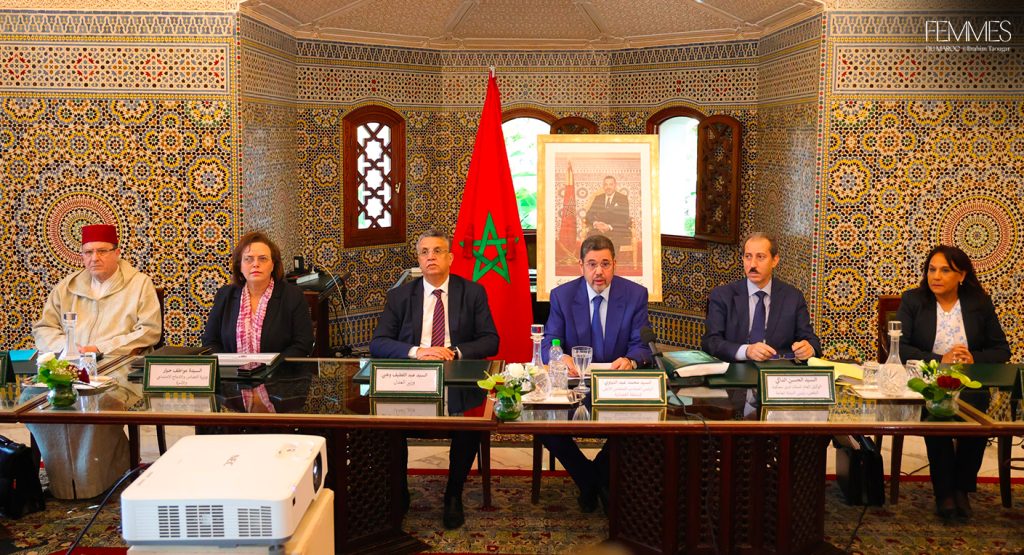
Since taking reign in 1999,King Mohammed VI has given priority to women rights and empowerment.
Building on previous reforms,Morocco has adopted a draft family code,spurred by King Mohammed VI that is permeated by justice,equality,solidarity,and harmony with the precepts of Islam and universal values.
The draft code was presented to the King in December last year,introducing 100 amendments. The King submitted the text to the opinion of the supreme religious council concerning issues with a religious aspect.
The King urged the council to further examine some issues of Islamic jurisprudence in line with “constructive ijtihad” to keep pace with the development of the Moroccan family,and to “provide innovative answers that meet contemporary requirements.”
In September 2023,the King,who has the title of the Commander of the Faithful,made it clear that the new code “should not forbid what is lawful not prohibit what is permitted.”
Once ready,the new draft family code will be submitted to Parliament’s approval.
Twenty years after the latest family code reform,the King said this new review aims to “ensure the legal,social,and economic protection of the family…the basic unit of society”
“This requires ensuring that all the aforementioned points are reflected in clear and understandable legal rules to overcome conflicting judicial interpretations and disputes over their interpretation,” the king said.
New provisions
The new code meets the contemporary needs of the Moroccan family by protecting women and children’s rights as well as man’s dignity.
Some of the highlights of the review include:
The possibility for Moroccans residing abroad to contract marriage without the presence of two Muslim witnesses if this was not possible.
Setting legal age marriage at 18,exception to this rule at 17 years.
Mandatory consultation of the wife’s opinion during the documentation of the marriage contract whether she allows her husband to marry another wife. The husband should act in accordance to this term.
Establishing a non-judicial body for reconciliation and mediation,whose intervention is required,in principle- except in the case of consensual divorce- with its task limited to attempting to reconcile the spouses and mediating the consequences of divorce.
Making consensual divorce a direct contract between the spouses,without the need for judicial procedures,and reducing the types of divorce,while setting a maximum period of six (6) months to decide on divorce cases.
The wife’s work at home shall be considered as a contribution to the development of assets acquired during the marital relationship.
Considering child custody as a shared right between the spouses during the marital relationship.
The custody of the divorced mother over her children does not lapse despite her remarriage.
Making “legal guardianship” shared between the spouses during the marital relationship and after its dissolution.
Protecting minors and enhancing the legal protection of their assets,and impose judicial oversight on the actions taken by their guardian,trustee,or custodian.
The right of the husband or wife to retain the marital home in the event of the death of the other spouse,according to conditions specified by law.
Implementing the proposal of the Supreme Council of Ulema regarding the issue of “inheritance for daughters,” which allows a person to gift whatever they wish from their assets to female heirs during their lifetime.
Opening the possibility of wills and gifts between spouses in the case of different religions.
United News - unews.co.za